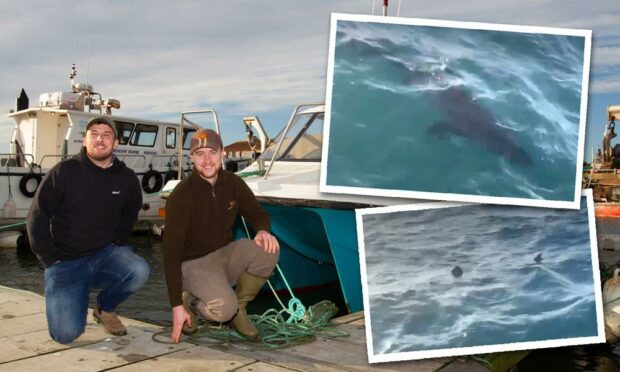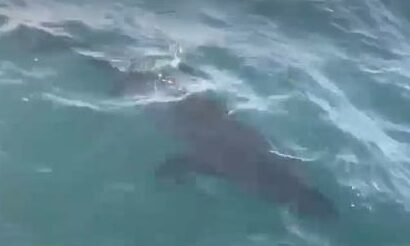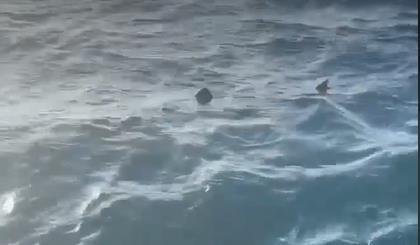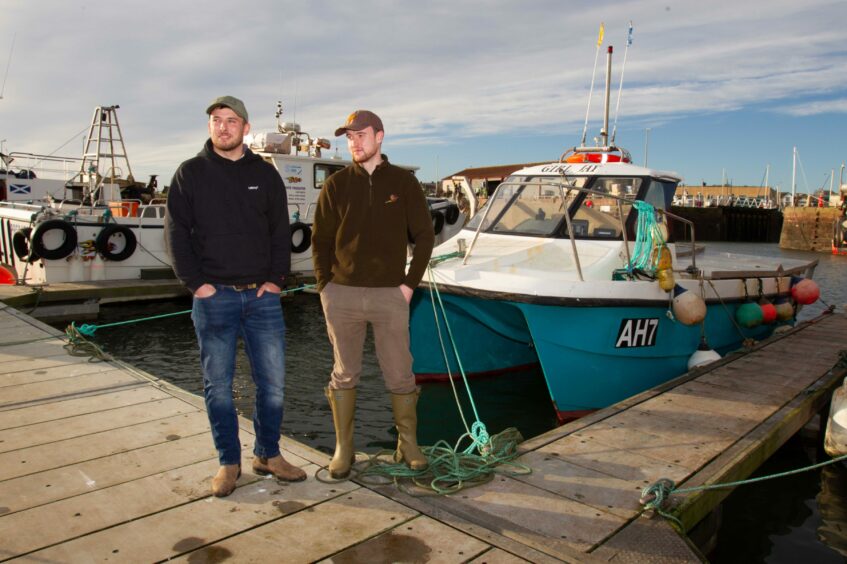A pair of Arbroath fishermen have told of their amazement at spotting a 15-foot shark from their boat off the Angus coast.
Tommy Yule and Keir Mudie, both 23, saw the basking shark while working on Tommy’s boat, the Girl Jay, on Tuesday.
The creel fishermen were busy moving their traps out to deeper water when the aquatic giant swam up and began moving alongside them.
Tommy said: “I first spotted the dorsal fin coming through the water – it must have been at about 12.30pm.
“There’s bad weather forecast so we were moving the creel out to deeper water, that’s when I spotted the fin coming up.
“After that it started swimming around the boat.”
While the idea of being circled by a 15-foot sea creature may be intimidating, basking sharks are actually harmless – something Tommy and Kier were aware of.
The fisherman said: “We weren’t scared at any point, just impressed.
“They’re filter feeders, not dangerous at all.
“We stopped alongside it and watched it for about five minutes before it swam off.
“We could’ve followed it but obviously we had work to do so we had to move on.
“They’re not very common though, I’ve been doing this for seven years and I’ve only seen one before this.”
Dr Sam Collin, living seas manager at the Scottish Wildlife Trust, says basking sharks are the largest fish found in Scotland’s seas and the second largest fish in the world.
He said: “They can grow up to 40 feet in length. They feed on plankton and they are harmless to people.
“However, there is a risk of accidental collisions and the species is very sensitive to disturbance. This means it’s important not to approach them and to watch from a safe distance.”
Despite becoming more common in some parts of Scotland, basking sharks as still on the endangered list due to high levels of hunting.
Dr Collin added: “Large numbers of basking sharks were hunted for the oil in their livers up until the 1990s. Despite having legal protection, they remain endangered.
“The Scottish Wildlife Trust successfully campaigned for a new Marine Protected Area for basking sharks in the sea off the Hebrides, which was designated in 2020.
“We hope this important measure will help support the recovery of the species.”














